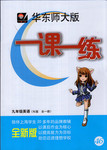题目内容
In England three foreign gentlemen came to a bus stop. They studied the information on the post sign and decided which bus to take. About five minutes later the bus they wanted came along. They prepared to get on. Suddenly people rushed onto the bus and tried to push them out of the way. Someone shouted insulting remarks about the foreigners. The bus conductor came rushing down the stairs to see what all the trouble was about. The three foreign gentlemen looked puzzled and ashamed. No one had told them about the British custom of lining up for a bus so that the first person who arrived at a bus-stop is the first person to get on the bus.
Learning the language of a country isn’t enough. If you want to ensure a pleasant visit, find out as much as possible about the manners and customs of your hosts. You will probably be surprised just how different they can be from your own. A visitor to India would do well to remember that people there consider it impolite to use the left hand for passing food at table. The left hand is supposed to be used for washing yourself. Also in India, You might see a man apparently shaking his head at another and assume (认为) that he is disagreeing. But in many parts of India a rotating (旋转) movement of the head is a gesture that express agreement or acceptance. Nodding your head when offered a drink in Bulgaria is likely to leave you thirsty. In that country you shake your head to express “yes” — a nod means “no”.
In Europe it is quite usual to cross your legs when sitting, talking to someone, even at an important meeting. Doing this when meeting an important person in Thailand, however, could cause offence (冒犯). It is considered too informal an attitude for such an occasion. Also when in Thailand avoid touching the head of an adult — it’s just not done. Attitudes to women vary considerably around the world. In Japan, for example, it is quite usual for men to plan evening entertainments for themselves and leave their wives at home.
Knowing about customs and attitudes is useful when you are travelling, but you also need to know the language used to express different degrees of formality (礼节)
- 1.
The three foreign gentlemen looked puzzled and ashamed because _________
- A.they didn’t know the English language
- B.the bus conductor told them to jump the queue
- C.they didn’t know the custom of lining up for a bus
- D.they thought they were looked down upon
- A.
- 2.
What’s the meaning of the underlined word “insulting” in Para. 1?
- A.Modest
- B.Entertaining
- C.Misunderstanding
- D.Rude
- A.
- 3.
Which of the following statements is TRUE according to this passage?
- A.In Europe, using the left hand is considered less respected
- B.In India, the left hand is not used as a sign of respect to others
- C.In Thailand, you’d better cross your legs when sitting or talking
- D.In Japan, it is considered bad manners to touch the head of an adult
- A.
- 4.
The underlined sentence “Nodding your head when offered a drink in Bulgaria is likely to leave you thirsty” means in Bulgaria _______
- A.you are probably thirsty if you nod your head
- B.you’re possibly eager to have a drink if you nod your head
- C.you probably refuse to drink when you nod your head
- D.you’d like to have a cup of tea because you nod your head
- A.
- 5.
We can infer from the passage that _________
- A.in Asian countries, women are equal to men in every field
- B.learning a language well is a necessity before going abroad
- C.attitudes to women vary from country to country
- D.in Japan, men are still the centre of the family
- A.
CDBCD
试题分析:
1.细节题,由第一段最后一句No one had told them about the British custom of lining up for a bus so that the first person who arrived at a bus-stop is the first person to get on the bus.可以推出答案,故选C。
2.推理题。由第一段第三行Suddenly people rushed onto the bus and tried to push them out of the way和后面的shouted和remarks可以推出答案,所以选D。
3.细节题,由第二段第四行A visitor to India would do well to remember that people there consider it impolite to use the left hand for passing food at table.可以知道答案,所以选B
4.推理题,由第二段最后一句In that country you shake your head to express “yes” — a nod means “no”可以推出答案,所以选C
5.推理题,由倒数第二段最后一句In Japan, for example, it is quite usual for men to plan evening entertainments for themselves and leave their wives at home.所以选D
考点:本篇是一篇说明文
点评:本文说明了各个国家有自己的风俗习惯,所以要入乡随俗。推断题测试考生在阅读基础上的逻辑推理能力,要求考生根据文章所述事件的逻辑关系,对未说明的趋势或结局作出合理的推断;或根据作者所阐述的观点理论,对文章未涉及的现象、事例给以解释。考生首先要仔细阅读短文,完整了解信息,准确把握作者观点。
试题分析:
1.细节题,由第一段最后一句No one had told them about the British custom of lining up for a bus so that the first person who arrived at a bus-stop is the first person to get on the bus.可以推出答案,故选C。
2.推理题。由第一段第三行Suddenly people rushed onto the bus and tried to push them out of the way和后面的shouted和remarks可以推出答案,所以选D。
3.细节题,由第二段第四行A visitor to India would do well to remember that people there consider it impolite to use the left hand for passing food at table.可以知道答案,所以选B
4.推理题,由第二段最后一句In that country you shake your head to express “yes” — a nod means “no”可以推出答案,所以选C
5.推理题,由倒数第二段最后一句In Japan, for example, it is quite usual for men to plan evening entertainments for themselves and leave their wives at home.所以选D
考点:本篇是一篇说明文
点评:本文说明了各个国家有自己的风俗习惯,所以要入乡随俗。推断题测试考生在阅读基础上的逻辑推理能力,要求考生根据文章所述事件的逻辑关系,对未说明的趋势或结局作出合理的推断;或根据作者所阐述的观点理论,对文章未涉及的现象、事例给以解释。考生首先要仔细阅读短文,完整了解信息,准确把握作者观点。

练习册系列答案
 华东师大版一课一练系列答案
华东师大版一课一练系列答案
相关题目




